Precision and efficiency take center stage in the dynamic landscape of industrial processes. When it comes to measuring liquid propane with accuracy and reliability, Coriolis flow meters stand out as the undisputed champions. These advanced instruments leverage the Coriolis effect—a phenomenon where a fluid moving in a rotating system experiences a force perpendicular to the direction of motion—to deliver unparalleled measurement precision.
With more industries jumping on the propane bandwagon for its versatility and eco-friendly perks, the need for spot-on measurements is growing. So, in this article, we’re going to dive into the nitty-gritty of Coriolis flow meters. We’ll break down how they work in simple terms, making it easy to see why these meters are the top choice for industries that can’t afford to mess around with imprecise propane measurements.
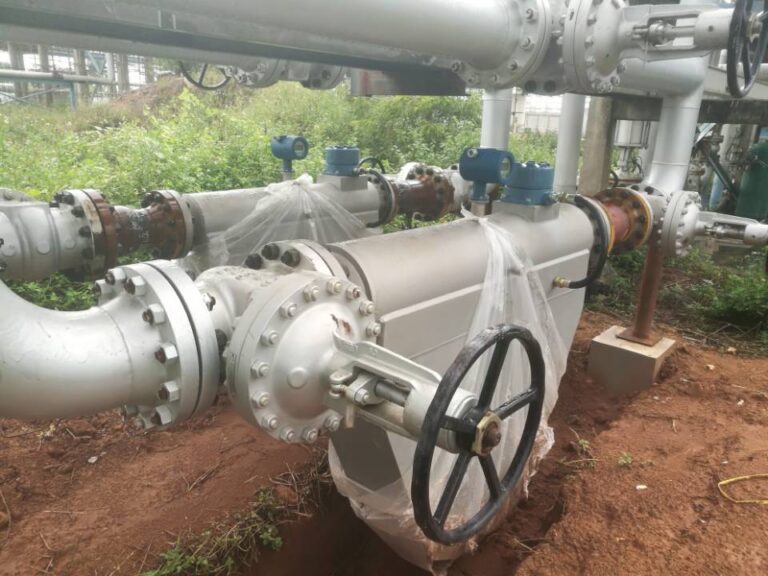
How the Coriolis flow meter works to measure Propane
Coriolis flow meters, known for their precision and versatility, are particularly adept at measuring the flow of propane, a common fuel used in various industrial and residential applications. Understanding how these meters work to measure propane involves examining their fundamental principles and the unique characteristics of propane as a fluid.
The Coriolis Principle
The essence of how a Coriolis flow meter operates lies in the Coriolis effect. This is a physical phenomenon that kicks in when a mass is in motion within a rotating system. In the case of Coriolis meters, the system is a vibrating tube through which the fluid (propane in this case) flows. As propane passes through this oscillating tube, it experiences acceleration and deceleration due to the tube’s motion. This movement generates a Coriolis force, causing the tube to twist or distort slightly. The degree of this twist is proportional to the mass flow rate of the propane passing through the tube. By gauging this rotational force, the meter can precisely calculate the mass flow rate of the propane.
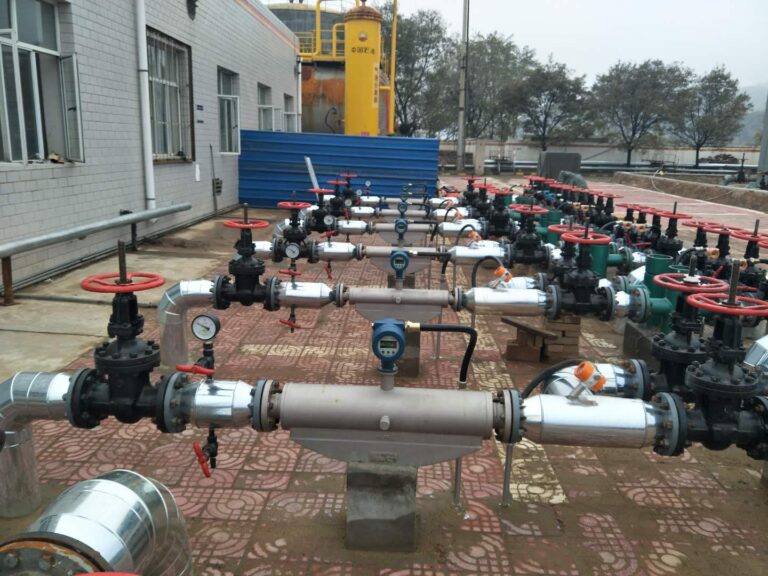
Measuring Propane with Coriolis Flow Meters
Propane presents unique challenges in flow measurement due to its low viscosity and density. Coriolis flow meters excel in this application for several reasons:
- Direct Mass Measurement: Unlike other meters that measure volume and require correction factors for density variations, Coriolis meters directly measure mass flow. This characteristic is particularly advantageous for propane, where density can vary with temperature and pressure changes.
- High Accuracy and Repeatability: Propane measurement demands high accuracy, especially in applications like fuel supply and process control. Coriolis meters provide highly accurate and repeatable measurements, essential for managing propane’s efficient and safe usage.
- Robustness and Reliability: Given the flammable nature of propane, the robustness and reliability of measurement instruments are critical. Coriolis meters’ solid-state construction with no moving parts minimizes maintenance needs and enhances safety.
- Versatility: Coriolis flow meters can handle a wide range of flow rates, temperatures, and pressures, making them suitable for various propane applications, from residential usage to large-scale industrial processes.
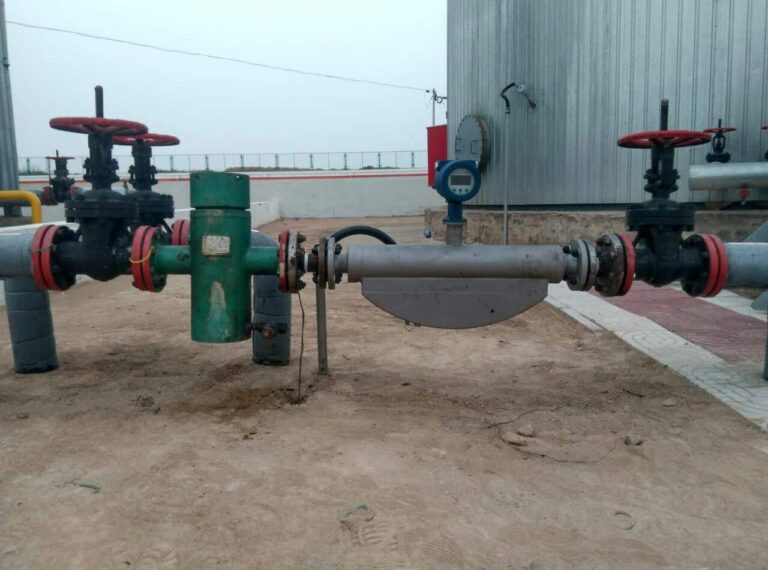
Industrial Use of Propane and the Need for Accurate Measurement
Industries rely on propane as a versatile workhorse, playing pivotal roles in diverse applications. Beyond its role as a primary fuel for heating and powering equipment, propane takes center stage as a useful raw material in intricate chemical processes. The significance of accurate propane measurement extends far beyond mere quantification; it is the linchpin for efficient operations and adherence to stringent industrial standards.
1. Cost Management and Billing Precision:
Accurate measurement of propane isn’t just about numbers; it’s the cornerstone for effective cost management and billing. Especially in scenarios where propane transactions are based on volume or weight, precision ensures fair and transparent financial dealings.
2. Safety Imperatives in Propane Handling:
The volatile nature of propane demands a meticulous approach to its handling. Precise measurement becomes a non-negotiable component in ensuring safety on industrial premises. By exercising exact control over propane quantities, industries mitigate the risk of accidents, creating a secure working environment for personnel.
3. Process Integrity and Product Quality:
Within the manufacturing and processing realms, precision is synonymous with process integrity and product quality. The exact amount of propane is not just a quantitative metric; it is a qualitative determinant. Industries rely on accurate measurements to maintain the consistency and quality of their processes, ultimately influencing the caliber of the final products.
4. Adherence to Regulatory Standards:
The industrial landscape is subject to a myriad of regulations governing fuel usage, emissions, and safety. Accurate measurement of propane is a non-negotiable requirement for regulatory compliance. Industries must meet these standards not only to abide by the law but also to contribute to environmental sustainability and the overall well-being of their communities.
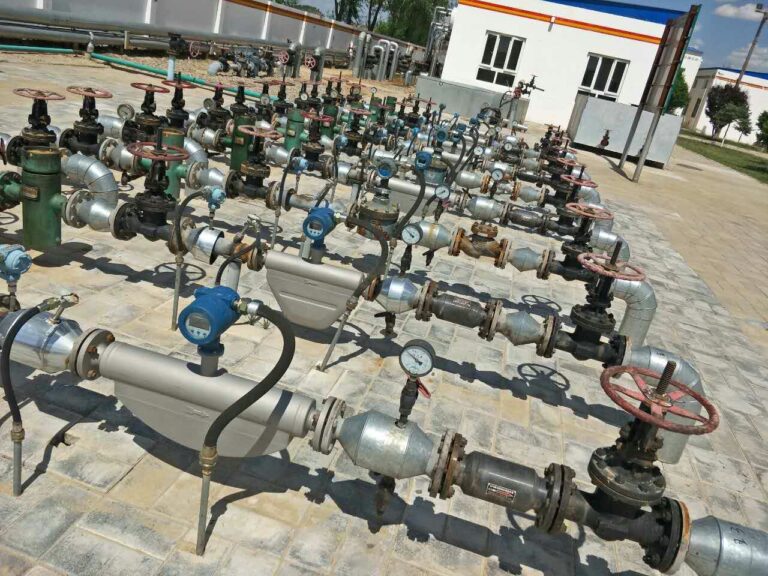
Installation and Calibration
The successful deployment of Coriolis flow meters, especially in critical applications like propane measurement, hinges significantly on proper installation and calibration. These steps ensure accuracy, efficiency, and longevity of the flow meters.
Proper Installation Guidelines
Proper installation is essential for Coriolis flow meters to function accurately. These meters work on the principle of controlled generation of vibration, making their placement sensitive to external vibrations and environmental factors. Key installation guidelines include:
- Location: The meter should be installed in a location that is as far away as possible from sources of external vibration or mechanical shocks. This minimizes interference with the meter’s operation.
- Orientation: While Coriolis flow meters are versatile in terms of mounting orientation, the specific application and fluid characteristics might necessitate a particular positioning. Consulting the manufacturer’s guidelines is essential.
- Piping Considerations: Proper support of the piping and the meter itself is also important to prevent strain and stress that can affect measurement accuracy.
- Environmental Factors: Consideration should be given to the environmental conditions, such as temperature and humidity, which could impact the meter’s functionality.
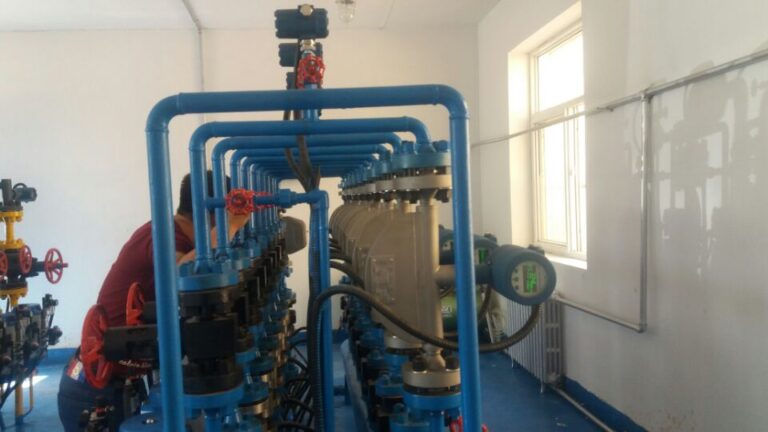
Importance of Calibration for Precise Measurements
Calibration is a process where the meter’s measurements are compared and adjusted to match a known standard. In the context of Coriolis flow meters, particularly for propane applications, calibration is vital for the following reasons:
- Accuracy: Calibration ensures that the meter provides accurate readings, critical in applications where precise flow measurements of propane are required.
- Consistency: Regular calibration maintains the consistency of measurements over time, an important factor in long-term monitoring and process control.
- Safety: In propane applications, accurate flow measurement is not just a matter of efficiency, but also of safety due to the flammable nature of propane.
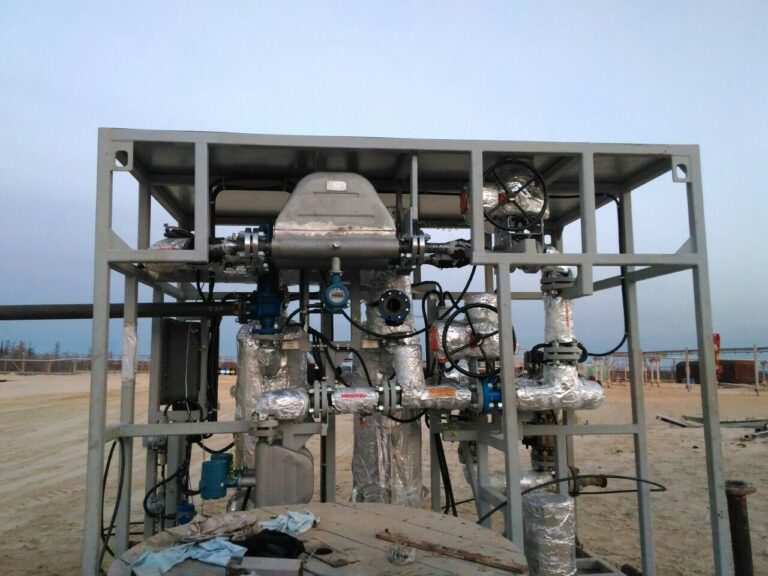
Ensuring Optimal Performance in Propane Applications
To ensure optimal performance of Coriolis flow meters in propane applications, attention must be paid to:
- Material Compatibility: The materials used in the flow meter should be compatible with propane to prevent corrosion or degradation.
- Flow Range: The meter should be selected based on the expected flow range of propane in the specific application to ensure accurate measurement across the entire range.
- Temperature and Pressure Ranges: Propane’s properties can vary with temperature and pressure, so meters must be capable of operating effectively across the expected ranges.
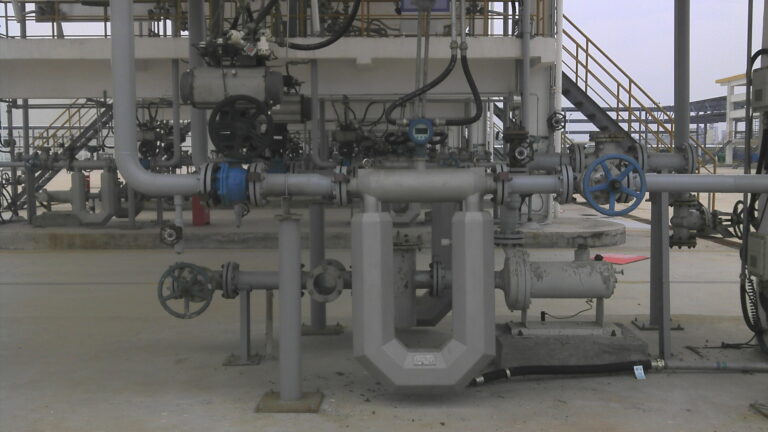
Challenges and Solutions
Coriolis flow meters are renowned for their precision and reliability in fluid measurement. However, like any sophisticated instrument, they face certain challenges. Addressing these effectively ensures sustained accuracy and longevity.
Addressing Potential Issues with Coriolis Flow Meters
- Sensitivity to External Vibrations: One challenge is the Coriolis meter’s sensitivity to external vibrations, which can interfere with the accuracy of measurements. To counter this, installation in vibration-free environments or using vibration dampeners is recommended.
- Costs and Investment: High initial investment can be a barrier. While the upfront cost is significant, the long-term savings in accuracy, reduced maintenance, and reliability often justify the investment.
- Maintenance Needs: Regular maintenance is crucial. Issues like sensor blockage or debris buildup can affect accuracy. Scheduled cleaning and inspection routines can prevent such problems and prolong the meter’s life.
- Complexity of Calibration: Calibration can be complex, but it’s essential for maintaining accuracy. Calibration should be performed regularly and in line with the manufacturer’s guidelines.
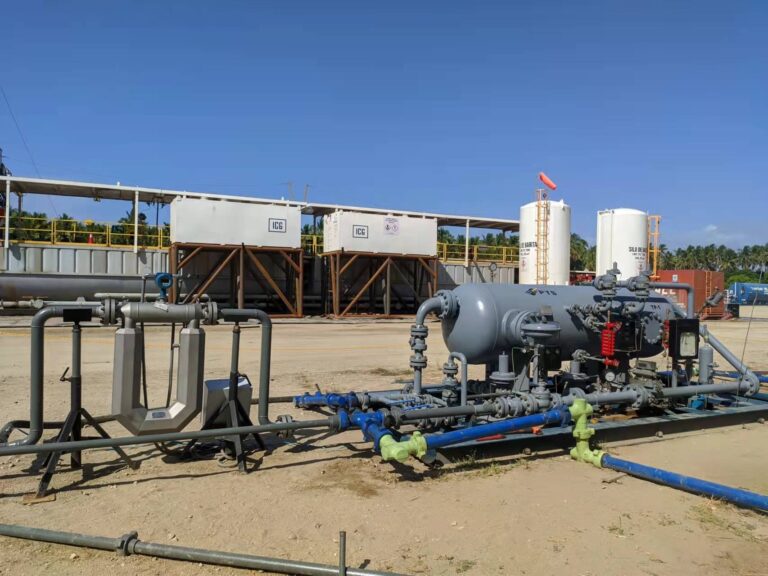
Strategies for Maintaining Accuracy Over Time
- Regular Calibration: Routine calibration is critical to maintain accuracy. This involves comparing the meter’s measurements with a known standard and making adjustments if necessary.
- Routine Maintenance and Cleaning: Regular maintenance, including cleaning of the sensor and checking for any obstructions or deposits, is vital. This ensures that the meter operates at its best, free from any physical interference that might skew readings.
- Environmental Considerations: Be mindful of environmental factors such as temperature and pressure, which can impact meter performance. Installing meters in environments with stable conditions, where possible, can reduce these effects.
- Use of Protective Measures: Implementing protection against process-related challenges, such as high pressure or corrosive fluids, can extend the life and maintain the accuracy of the meter.
- Training and Expertise: Ensuring that personnel are trained in the operation and troubleshooting of Coriolis flow meters can prevent many common issues.
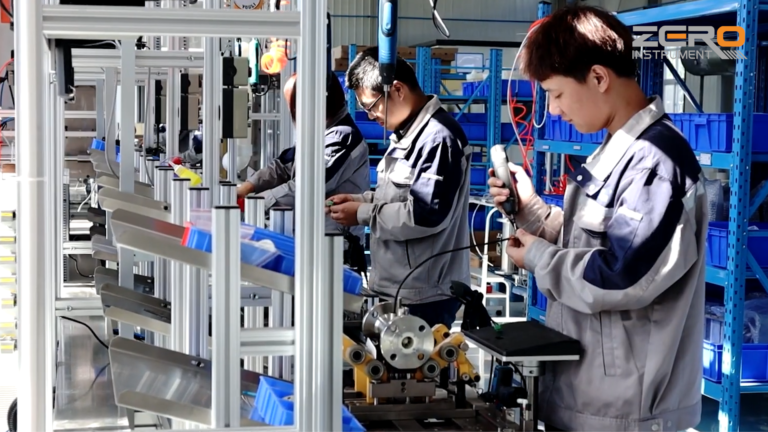
Conclusion
The importance of precise propane liquid measurement cannot be overstated. Coriolis flow meters stand out not just as tools, but as essential components for accuracy. In exploring their role in measuring propane liquid, it’s evident that these devices go beyond mere technology; they are practical necessities.
Industries seeking accurate and efficient propane measurement find a dependable partner in Coriolis flow meters. Despite their simple design, these meters redefine accuracy standards across sectors. Their significance goes beyond measurement, playing an essential role in the smooth operation of propane-dependent industries. In conclusion, Coriolis flow meters not only meet but exceed the demands of the industrial landscape, embodying a future where precision is vital.
